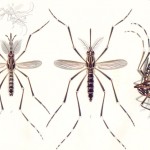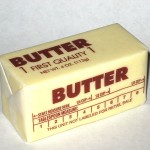By Catherine Haug, June 2015 (photo, right, from NPR (1))
Mercola (2) has an article about toxic chemicals (not just plastics), most of which are endocrine disruptors. That means that they either mimic the action of hormones from our endocrine system, or they block the cells’ binding sites for our natural hormones so they cannot do their job. It appears that the majority of these toxins affect the sex hormones, resulting in early puberty in boys and girls; low testosterone in mature males, and birth defects. Some also affect our digestive system.
See also my posts:
- BPA in cans and store receipts: brands that do/don’t
- Canned Tomatoes & BPA Linings
- Toxic Plastics – Not Just BPA
Read on for a listing of the 12 most common endocrine disruptors, and how to avoid them. (more…)



